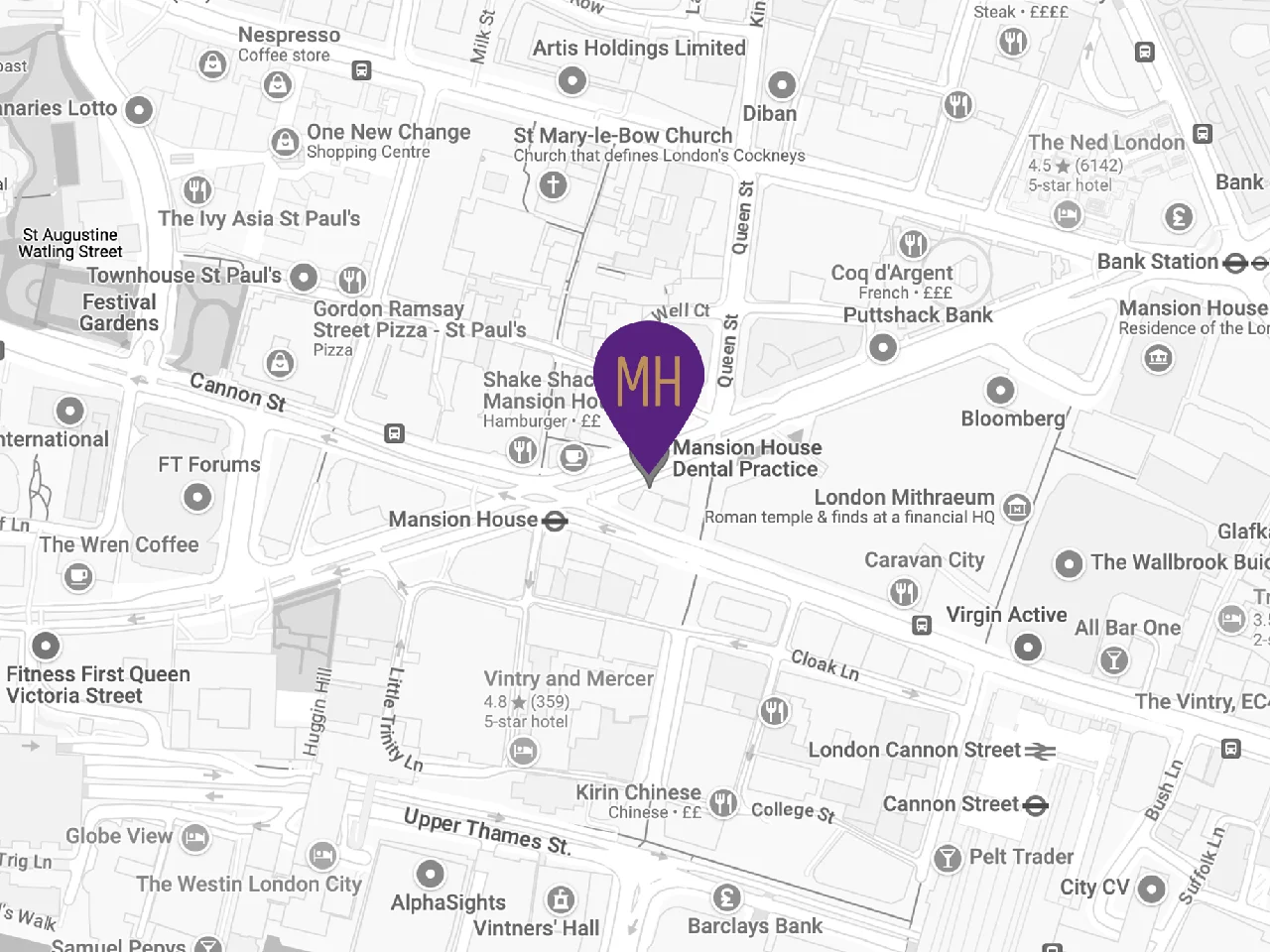Solutions to grinding teeth at Mansion House
Clenching your teeth and grinding them isn’t just a bad habit. As it mostly occurs unconsciously, including when you’re asleep, excessive teeth grinding, also known as Bruxism, can result in sore jaw muscles, headaches and damage to your teeth. Our City of London dentists can help.

Teeth grinding
at mansion house
- Achieve a more relaxed bite
- Relief from jaw pain and tension-type headaches
- Reduce the chance of receding gums and tooth loss

What is Bruxism?
<highlight-peru>Bruxism is a condition in which you grind, gnash or clench your teeth.<highlight-peru>
You may unconsciously clench your teeth together during the day, or clench or grind them at night, in what is known as a sleep-related movement disorder called sleep bruxism.
If you clench or grind your teeth while you’re sleeping you are more likely to have other sleep disorders, such as snoring and pauses in breathing, known as sleep apnoea. While mild bruxism may not require treatment, for some people bruxism can be frequent and severe enough to lead to jaw disorders, headaches, damaged teeth and other problems.
What causes teeth grinding?
<highlight-peru>Teeth grinding is commonly a developmental phase in children and something they will grow out of as their adult teeth develop.<highlight-peru>
However, if adult teeth form with an abnormal bite this can increase the likelihood of teeth grinding.
Anxiety and stress are common underlying conditions of bruxism, while certain medications can also cause the condition to occur. Another common cause of teeth grinding at night is sleep disorders, such as sleep apnea.


Treatment for teeth grinding
In many cases of bruxism, or teeth grinding, treatment isn’t necessary. Many children outgrow the condition without treatment, and many adults don’t grind or clench their teeth badly enough to require therapy.
Your Mansion House dentist may suggest ways to preserve or improve your teeth and while these methods may prevent or correct the wear to your teeth, they may not stop the bruxism.
Treatment options include certain dental approaches, therapies and medications such as:
- Occlusal splints and mouthguards
- Tooth adjustment
- Teeth replacement
- Changes to your diet and exercise
- Medication
A careful and detailed analysis by our dentists in the City of London will help establish the underlying causes and best mode of treatment for your teeth grinding, and we can put together a recommended treatment plan suited to your needs.
Reviews that make us smile
At Mansion House, we aim to provide the highest standard of dental care in a friendly, modern, comfortable and conveniently located environment. Because patient satisfaction means everything to us.
Wonderful practice with wonderful staff. Dr. Qassim is very professional and thorough in his explanations pertaining to the procedures being done or recommended treatment. Very happy with the quality of care.
Your teeth grinding questions answered
Grinding your teeth at night may occur for several reasons, perhaps due to an abnormal bite, stress, anxiety, certain medications or sleep disorders. Teeth grinding does not mean you have a permanent condition or a serious underlying illness. Almost everyone experiences teeth grinding at some point in their lives, either at night or during the day, and it is usually not a major problem.
If your teeth grinding is due to stress or anxiety, certain lifestyle changes may help you to stop, or at least to grind your teeth less frequently or with less intensity. Reducing stress, eliminating certain stimulants and practising better sleep hygiene can all help.
Persistent teeth grinding may lead to problems if no preventative steps are taken. Potential problems from untreated bruxism include chipped teeth, broken teeth, cracked teeth, worn down teeth and gum recession.



